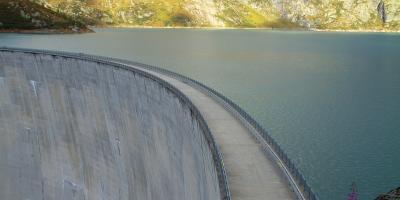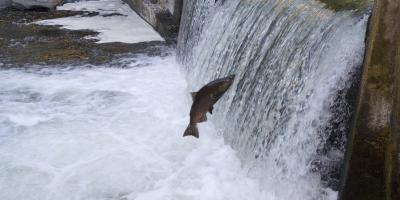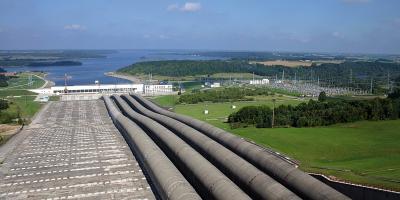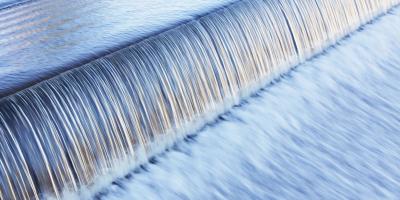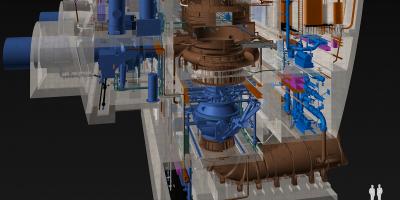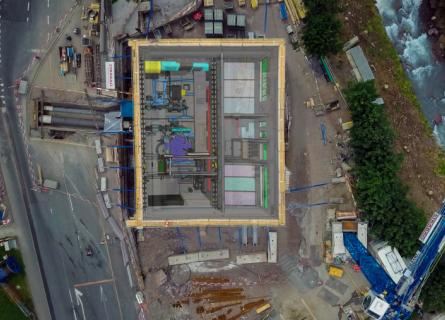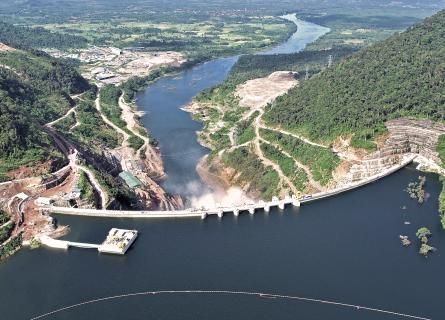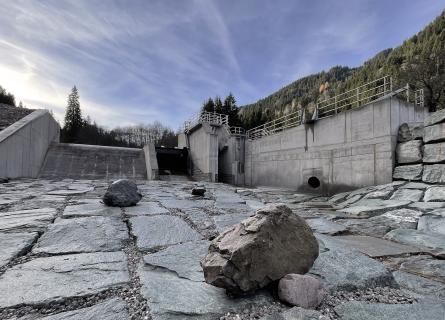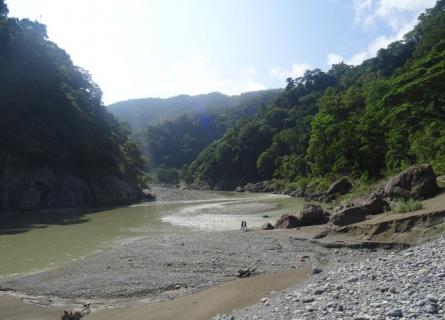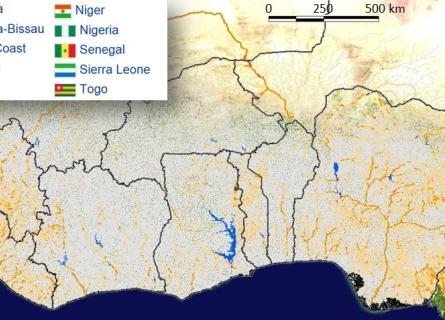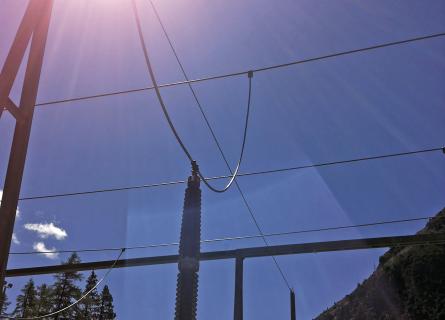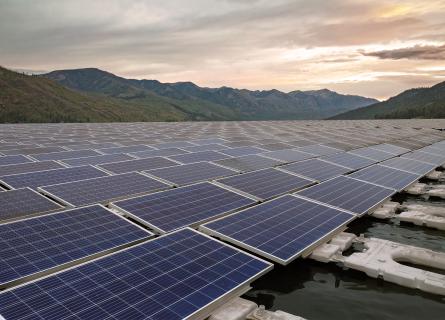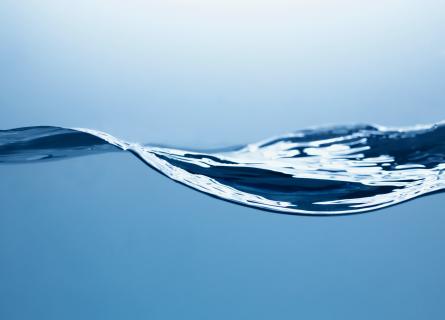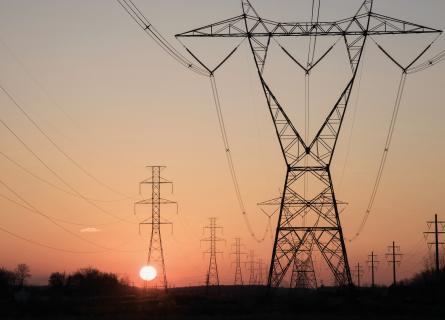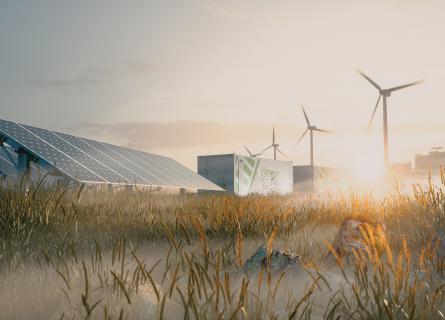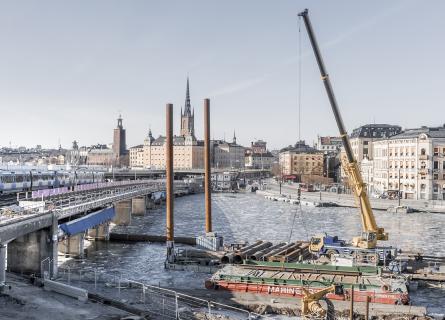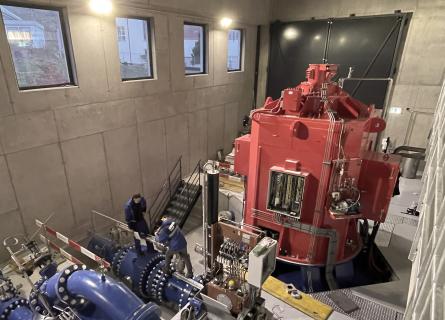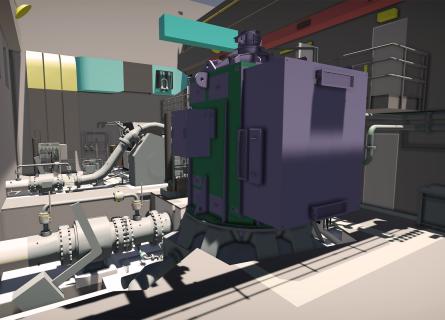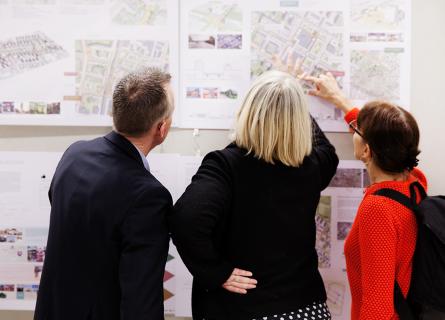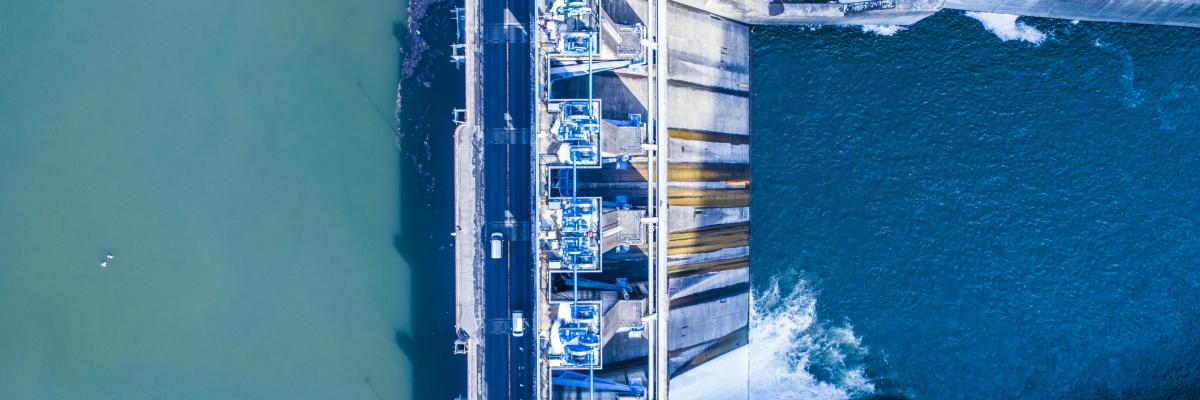
Hydro
At the forefront of technological innovations in hydro power generation
The increasing need for clean energy through the greater use of hydro power as a source of renewable energy is a socio-political necessity today. We are here to make it happen.
AFRY provides design and design review services for hydro power plants, from concepts and feasibilities to tenders and detailed design, as well as site supervision. This includes expertise from all fields of engineering e.g. geology, geotechnical, tunnelling, civil, hydrology, hydraulic, mechanical or electrical engineering backgrounds. We also specialize in various legal, regulatory, institutional, financial, technical, social and environmental frameworks for design.
Whether you need independent technical advice or a project life-cycle partner, our comprehensive in-house expertise allows us to provide the exact services you need to help identify and preserve your investments in hydropower electricity generation. We work closely with you, bringing best practice gained from over a century of international hydropower consulting expertise, enabling you to successfully execute your project, in a way which is socially, environmentally and economically responsible.
All types of hydro power plants
Our long experience encompasses a wide range of conventional hydropower plants, from the alpine type comprising long tunnels and hundreds of meters' head, to low run-of-river schemes developing a few meters of head, both with weirs and dams. Clients can rely on our expert services in large dam and reservoir design and on our extensive know-how in the design and implementation of reversible pumped storage power plants.
Many existing hydro power plants are in need of rehabilitation and upgrading to increase energy efficiency, reliability and flexibility. For a continuous, economical operation of these plants, we provide our clients with complete renewal concepts and investment planning for existing infrastructure, as well as renovation of civil works, penstocks, optimization of turbines and electro-mechanical equipment.
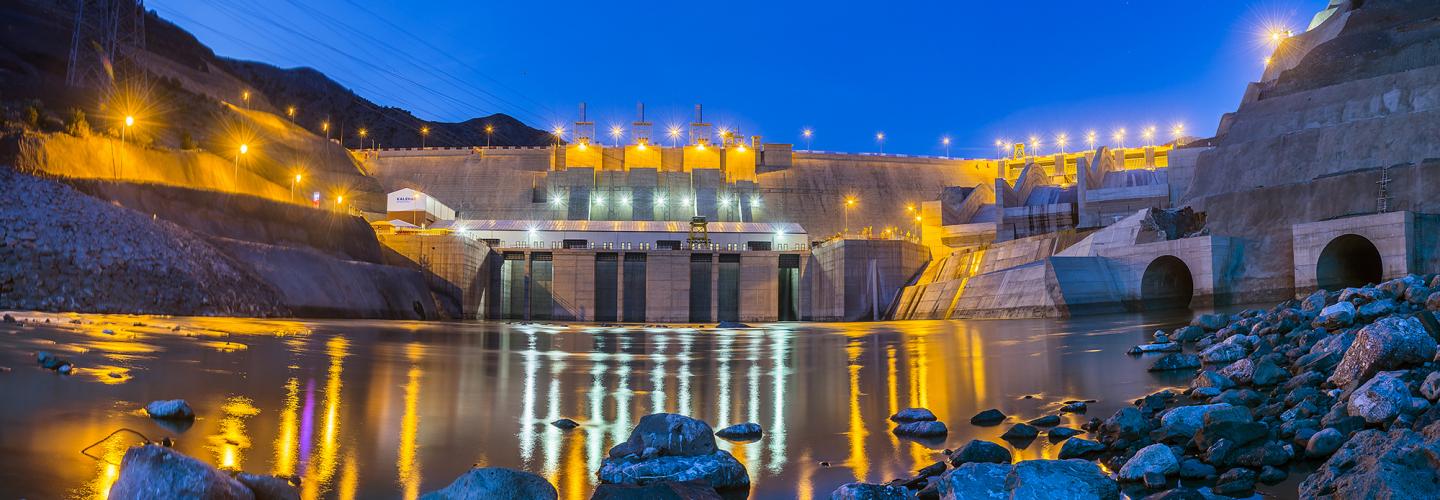
AFRY's expert services in hydroelectric power technology
- VDC|BIM (Virtual Design and Construction | Building Information Modelling)
- Concept
- Feasibility study
- Basic design
- Tender documents
- Detailed design
- Site supervision
- Commissioning
- Due Diligence
- Asset valuation
- Master planning
- Monitoring & Survey
- Operation & Maintenance
- Environmental & Social Impact Assessment
- Training & Know-how transfer/Capacity Building
- Health and safety coordination
- Construction management
- Modelling Tools: Climate change, CFD, Damosy, Sediment management
- Owner’s Engineer
- Lender’s Engineer
- Contractor's Engineer
- Developer’s Engineer
- Supplier’s Engineer
- Independent Engineer
We are committed to innovation and achieving the highest safety standards on all our projects, using Integrated Management System (for our ISO 9001:2015, ISO 14001:2015 and ISO 45001:2018/OHSAS 18001:2007 certificates, see our Policies and Management System) and proven cutting-edge technologies and safety practices to avoid and reduce risks to our employees, clients, partners and surrounding communities.
Frequently Asked Questions
- Is hydro power renewable?
- Can hydro power be developed sustainably?
- How can hydro power projects take into account the concerns of local communities?
- How does hydro power reduce carbon emissions?
- Is hydro power expensive?
- Can we not invest in other energy storage solutions?
Hydroelectric power is widely recognised as a source of renewable energy by bodies including the United Nations, International Energy Agency (IEA), International Renewable Energy Agency (IRENA) and the scientific community. It does not burn fossil fuels, no direct emissions are released into the atmosphere, and it is highly efficient, making it one of the cleanest forms of electricity generation.
Like any major infrastructure project, hydro power projects can have impacts on local communities and the environment, as well as providing benefits. Projects that are sited, planned and executed in accordance with recognised international good practices in sustainability can provide net-positive benefits on the economic development of affected communities and the wider environment. As the largest source of renewable energy, making up more than half of global renewable energy production, sustainable hydroelectric power is part of the solution to protecting the planet’s biosphere – and all life on Earth – by decarbonising the global economy, slowing the pace of climate change and preventing pollutants being emitted from fossil fuels.
Sustainability in hydropower development is defined by the Hydropower Sustainability Standard. This internationally recognised certification scheme has been developed through multistakeholder consensus with governments, NGOs, civil society, industry and the finance sector. It covers a comprehensive range of sustainability considerations from planning to preparation and enables developers to maximise the benefits that hydropower projects deliver to society.
It’s incredibly important that local community members are heard when planning and developing a hydropower facility, with their needs and concerns helping to shape project outcomes. The Hydropower Sustainability Standard outlines good practices in communications and stakeholder consultation and practical measures that can help to build trust.
Hydropower projects can, and should, be developed responsibly, with net-positive impacts on the environment and local communities. This requires them to be designed, implemented and assessed in accordance with internationally recognised good and best practices.
Hydroelectric power is a pollutant-free source of electricity generation and is among the cleanest sources of electricity, with a low greenhouse gas emission intensity compared to other energy forms. Independent research suggests that the use of hydro power instead of fossil fuels for electricity generation has helped to avoid more than 100 billion tonnes of carbon dioxide in the past 50 years alone, exceeding even the emissions averted by nuclear power.
If hydro power was replaced by coal, IHA estimates up to 4 billion tonnes of additional greenhouse gases would be emitted annually, increasing global emissions from fossil fuels and industry by 10 per cent. There would also be 150 million more tonnes of air polluting particulates emitted each year (IHA analysis) having a detrimental effect on achieving a carbon neutral future.
While hydro power has relatively high upfront construction costs, it produces very low-cost electricity over its long lifetime. The power and non-power benefits of sustainable hydro power projects can last significantly longer than those of alternative energy sources, and in some cases more than 100 years.
The global weighted average cost of electricity produced from hydro power projects in 2020 was US$0.044 per kWh, which is lower than any other renewable energy source except for onshore wind (US$0.039/kWh), and which makes it the lowest-cost source of electricity in many markets (IRENA).
Hydro power provides an opportunity to generate significant revenue from electricity exports to neighbouring countries. In addition, the hydro power industry directly employs around 2 million people worldwide, and many more in connected supply chains (IRENA).
Pumped storage hydro power, or ‘pumped hydro’, is by far the world’s largest source of energy storage, accounting for over 94% of installed energy storage capacity worldwide. Pumped storage hydropower provides long-duration energy storage, which will be increasingly important in stabilising energy systems as more variable renewables are developed. Wind and solar energy can be stored in water for long periods of time, and released whenever needed at short notice.
Moving away from pumped storage would mean turning to technologies such as lithium ion batteries, which are suitable for short duration (less than four hours) but rapidly lose cost effectiveness over longer periods. Other technologies still in development, such as carbon capture utilisation and storage (CCUS), are still in an infancy stage and far from being ready to be deployed at scale

Hydro power brochure
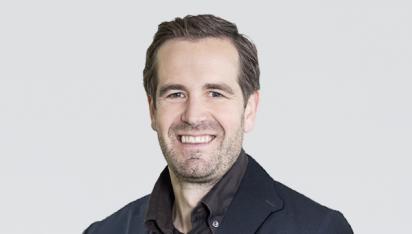
Interested in our offering? Contact us!
